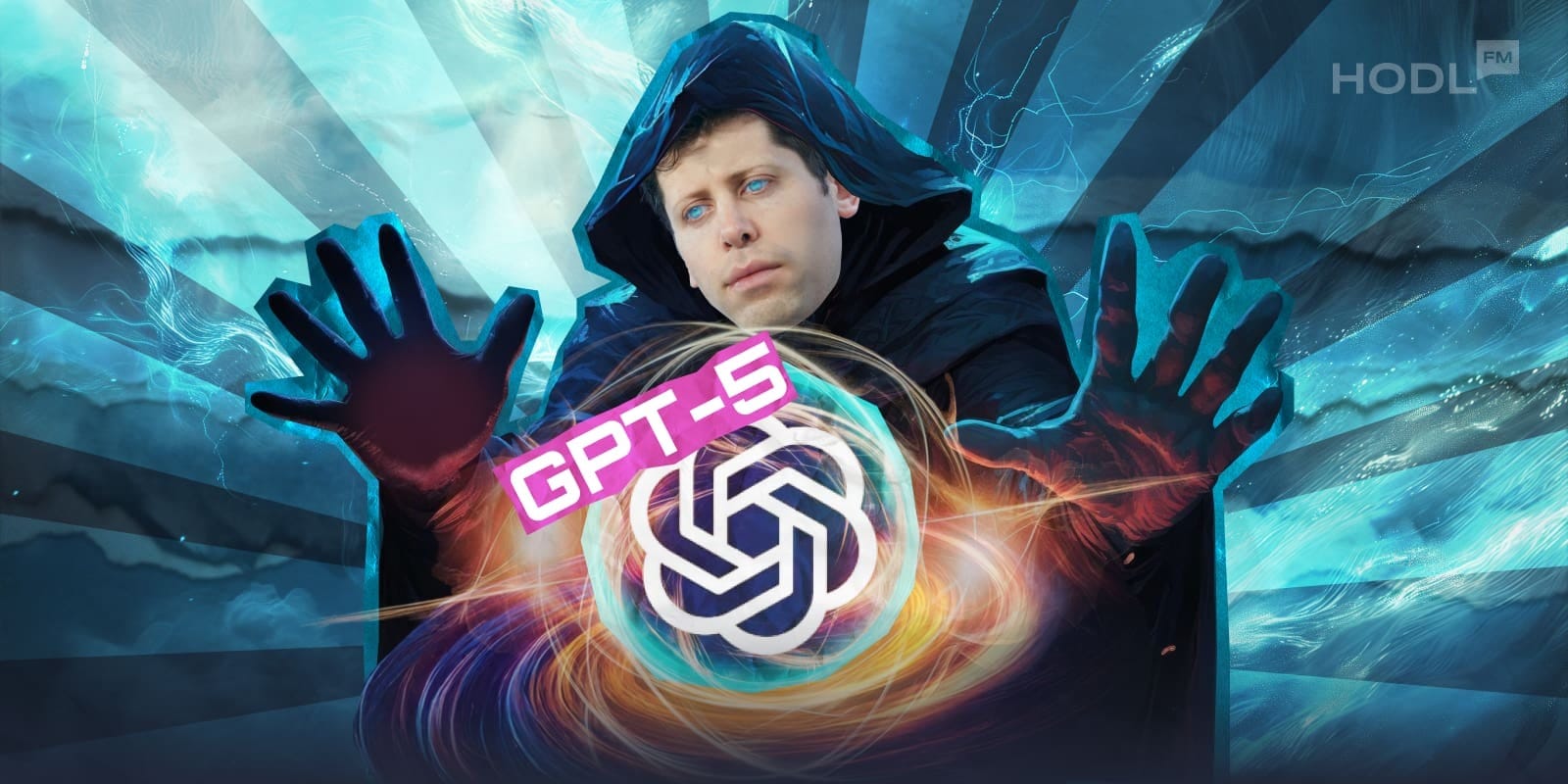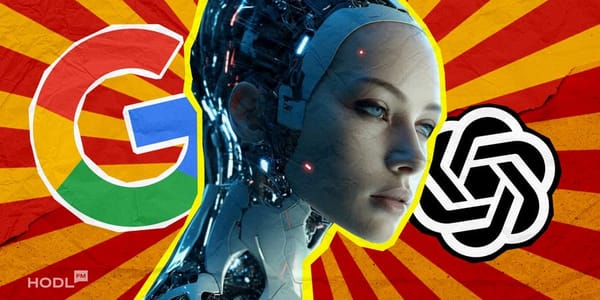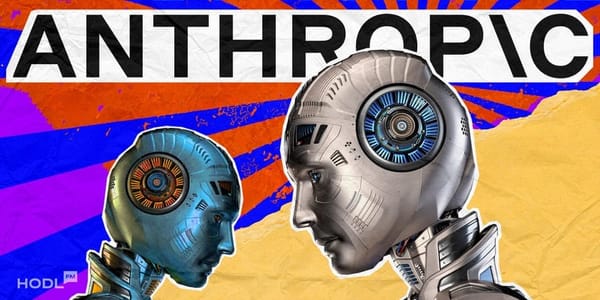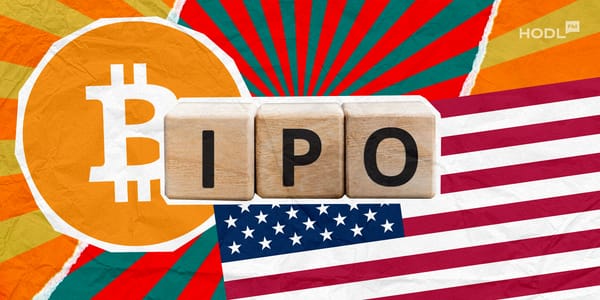Behind every company, there’s always a person or a group of people who first came up with the idea, nurtured it, and eventually brought it to life. And when that company is none other than OpenAI, founded with the backing of Sam Altman and Elon Musk, success was almost inevitable.
But what inspired them to create OpenAI? How did their vision of AI's potential take shape? Who believed in the company's success even before it launched, and who joined later? And how did early OpenAI history evolve, making it into what we see today?
First Conversations
Musk and Altman launched OpenAI, driven by their fear of human-level intelligence being controlled by tech giants like Google.
Back in 2015, Altman pitched the idea to Musk in an email, writing:
Been thinking a lot about whether it’s possible to stop humanity from developing AI. If it’s going to happen anyway, it seems like it would be good for someone other than Google to do it first.
Sam Altman emails Elon Musk
— Internal Tech Emails (@TechEmails) November 15, 2024
May 25, 2015 pic.twitter.com/L1F5bMkqkd
Elon responded that it was ‘Probably worth a conversation.’ That conversation may have been the moment the OpenAI idea was born.
At the time, the startup was known as YC AI, a research lab operating within Y Combinator’s nonprofit research division, YCR. As the president of the startup incubator, Altman leveraged Y Combinator’s vast network and resources to attract researchers and funding.
Musk, meanwhile, urged Altman and CTO Greg Brockman to secure over $100 million in funding, warning that anything less would seem insignificant compared to the deep pockets of Google and Facebook.

The irony today is that OpenAI decided to challenge the tech giants' dominance in AI research and development, only to become the very tech giant they once feared.
Key Figures Involved
OpenAI was founded as a nonprofit organization by a consortium of technologists and entrepreneurs. The company’s co-chairs were former Y Combinator president Sam Altman and businessman Elon Musk.
The founding team also included leading AI researchers and engineers: Greg Brockman, who became CTO; Ilya Sutskever, appointed as Chief Scientist; Wojciech Zaremba, who led the research division; and several others.
The organization secured venture funding from major investors, including Y Combinator, Amazon Web Services, Infosys, Reid Hoffman, Jessica Livingston, and Peter Thiel. The initial investment totaled $1 billion.
Development Timeline: How OpenAI`s research began before the public launch
Today, OpenAI is the most sought-after workplace in Silicon Valley, but ten years ago, it was hardly on the radar of top AI researchers. Despite backing from Musk and millions in funding, the young organization faced the same challenge as most startups: fierce competition for top talent.
To attract the best minds in AI, Altman and his team devised an unconventional compensation package: a base salary of $175,000, the title of “part-time partner” at YC, and 0.25% equity in each YC startup batch. Their goal was to assemble an elite team of seven to ten people—just enough to secure the industry's brightest minds. But Google’s AI lab, DeepMind, was hot on their heels.
Recently revealed emails between Elon Musk and OpenAI’s co-founders highlight just how concerned they were about DeepMind poaching their employees.
On December 11, 2015, Altman wrote:
Just got word... that DeepMind is planning to make huge counteroffers to everyone at OpenAI tomorrow to try to kill it.
He asked if anyone would object to raising compensation for all employees by $100,000–$200,000 per year.
"Looks like DeepMind is planning to start a war over this. They’re literally cornering people at NIPS," he added, referring to the annual machine learning conference.
Musk encouraged the team to take any necessary steps to attract top talent. “Either we get the best people in the world, or DeepMind will crush us,” he wrote.
In addition to the challenges of talent acquisition, OpenAI has faced ongoing AI ethics concerns throughout its development. The main issues included ensuring the responsible use of AI technologies, preventing misuse, and eliminating potential biases within AI systems.
The organization consistently integrated ethical AI research considerations into all stages of its development process, establishing internal oversight committees, engaging with external experts, and adhering to strict ethical guidelines.
Public Launch: Official Founding in December 2015
If you’ve gotten a bit lost in the narrative and thought the company already existed by this point, that’s not quite the case. It wasn’t until the OpenAI launch in December 2015 when the company was officially established and publicly introduced.
Announcing formation of @open_ai …https://t.co/Fcouhwh6MC
— Elon Musk (@elonmusk) December 11, 2015
Really excited to announce @open_ai. Please check it out: https://t.co/6mRsCgCJiX
— Sam Altman (@sama) December 11, 2015
Rather than keeping its research and patents under wraps, OpenAI announced its intention to collaborate freely with other institutions and researchers, making its work open to the public.
As successful and popular products were developed, OpenAI needed more funding than a nonprofit organization could provide. So, in 2019, the organization established a for-profit subsidiary, OpenAI LP (Limited Partnership), which was allowed to engage in commercial activities and generate profit.
This new structure was necessary to secure investments that OpenAI would have to repay from future profits. The LP’s sole purpose was to raise funds for the nonprofit core — OpenAI, which focuses directly on AI research and development, determining how those funds are allocated.
In 2019, OpenAI received a major donation from Microsoft amounting to nearly $1 billion. Fast forward to January 2023, and OpenAI and Microsoft entered into a long-term deal worth around $10 billion. This partnership allowed the companies to work together on developing new supercomputing technologies. As a result, Microsoft programmers gained access to OpenAI’s developments, integrating them into their own AI projects, while Microsoft Azure became OpenAI’s exclusive cloud services provider.
Impact and Legacy
In the early days of OpenAI 2015, in the own Elon Musk AI vision, he outlined the company’s original mission in emails:
OpenAI is a nonprofit AI research company aiming to develop digital intelligence in a way that is most likely to benefit humanity as a whole, without the obligation to generate financial profit.
Almost a decade later, OpenAI has lost its nonprofit status and is now valued at over $150 billion.
OpenAI has always been seen as a hub for the best AI talent worldwide. The company’s nonprofit status and its lofty mission to benefit humanity attracted much of that talent.
However, like Musk, some long-time employees of OpenAI have since started to question the company’s commitment to its mission. Several key executives have left over the past year, with some citing concerns about AI safety and ethics.
Jan Leike, who led OpenAI’s superalignment team, left the company in May, stating that it had strayed from its mission. Other executives were more reserved about the reasons for their departure.
Initial OpenAI vision was to develop artificial intelligence for the greater good, without focusing on profit. However, over time, things have changed. Today, OpenAI is a global leader in AI (let's pretend we haven't heard of DeepSeek), driven by financial gains, which has shifted the company away from the ideals it started with.

Disclaimer: All materials on this site are for informational purposes only. None of the material should be interpreted as investment advice. Please note that despite the nature of much of the material created and hosted on this website, HODL FM is not a financial reference resource and the opinions of authors and other contributors are their own and should not be taken as financial advice. If you require advice of this sort, HODL FM strongly recommends contacting a qualified industry professional.




